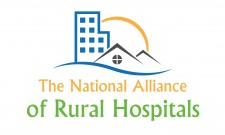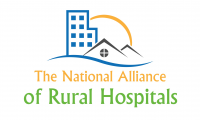The Empower Group Sets 2018 Goals to Save More Rural Hospitals

KANSAS CITY, Mo., February 6, 2018 (Newswire.com) - The Empower Group, a family-owned Florida corporation, has announced its intentions to continue its expansion into the acquisition and management of rural and critical access hospitals through its subsidiary EmpowerHMS (empowerhms.com), headquartered in Kansas City, Missouri. Led by the Perez family of Miami, Florida, the Empower Group is headed up by CEO Jorge Perez.
This initiative continues an ongoing strategy initiated by Empower to identify, assess and take over operations of distressed hospitals across the United States in order to avert their closure. The current number in Empower’s network is nearing 20 and growing.
For companies like Empower, the market for distressed hospitals on the brink is unfortunately plentiful. Over 82 rural hospitals have been shuddered since 2010, with more than 700 currently at risk of closure within 10 years. What would lead such a strong company as Empower to enter into what is recognized as a seemingly high-risk venture and why do they believe they can deliver on promises that many rural communities have repeatedly only heard from others?
For many who know him, it is CEO Perez’s background, passion and vision that has equipped him to be the “last best hope” for America’s rural hospitals and their communities.
After escaping Castro’s Cuba as a youngster, Perez’s family eventually settled in South Florida and by the early 1970s, his father pioneered the use of technology in healthcare billing and coding, enlisting the entire family to staff the enterprise.
“By the time we were teenagers,” Perez’s brother Ricardo, who serves as Empower chief operating officer, recalls, “Dad made certain we were all fluent in English, Spanish and coding.”
From those humble beginnings grew EmpowerHIS, recognized as an international leader in the healthcare billing and coding industry whose long list of clients come in every possible size.
Over the decades, Perez formed strong relationships with the facilities who were EmpowerHIS customers and he became familiar with the challenges facing rural hospitals and the communities they serve.
“I was fortunate to learn every facet and phase of these facilities, and it was upsetting to witness the anxiety, fear and stress that their insolvency can have on the patients, the staff and the community,” Perez stated.
Perez says that it came to a head for him when he saw a growing market of companies who would come in long enough to raise hopes, break their promises and fleece the community; accelerating the facility’s financial free-fall.
“It was then that I set out to usher in a paradigm shift to create a business model that would lead to long-term sustainability for all rural hospitals.”
But Perez had to convince his family and associates that his vision could turn the tide.
“It wasn’t easy at first - they would ask me why we would want to undertake such a daunting task.” But Perez says that their sentiment soon changed. “You can call me the 'lead dog' but to a person, they are pulling this sled every bit as hard.”
But it takes more than just enthusiasm and Empower knows it.
“Of course, ignoring the bottom line would be fool hearty,” stated Santiago “Sandy” Piqué, Empower CFO, who brings with him a half-century of experience at the highest levels of the financial and healthcare world, “which is why I didn’t go in a believer. But after an extensive evaluation, I came to the realization that the factors have lined up; this mixture of a groundbreaking vision coupled with an unwavering commitment will open much-needed revenue streams.”
Why is Empower different than other large entities engaged in the rural hospital market?
“Rural hospitals are all we do,” answered JT Lander, Empower senior vice president for business development. “Rural hospitals can be rounding errors in the books of large, diverse corporations.”
Continuing, Lander added, “They often purchase rural hospitals in a quest to appear benevolent and they quickly find that the corporate model doesn’t work in rural America and then they’ll sell off a rural hospital when things don’t go their way. We’ve clean up more than one of their messes.”
For Perez, all the ingredients for profitability are already in place – dedicated staffs, devoted communities and supportive governmental officials. “You have to listen and build on existing assets.”
The Empower strategies go well beyond the boilerplate methods of implementing efficiencies, upgrading infrastructure and sharing administrative and operating costs, but they don’t discount them.
“We do a top to bottom analysis of a facility and streamline, without offloading personnel or programs,” Piqué stated, “and we rebuild and replace capital assets.”
“A deteriorating facility is its own worst ambassador,” Perez added. “Given no other choice, people will travel elsewhere for healthcare.”
The facility is then plugged into EmpowerHMS’ hub located in Kansas City, Missouri, in order to shed the hospital of the high cost of having standalone administrative overhead.
“In some cases, we can reduce those costs by more than 90 percent by centralizing payroll, technology, human resources and procurement,” Jenni Upenieks, Empower HMS’ vice president of administration and human resources, indicated.
However, the motto of Empower is that the heart and soul of a hospital is not the brick and mortars, rather, it is the people and to Perez and his team, their well-being is “job one.” Ironically, many rural hospitals don’t even offer health insurance to their employees.
“We have even launched our own self-insurance health plan for all employees, with their hospitals acting as their primary care facility,” Upenieks continued.
It is one of Perez’s immediate goals to offer this low-cost health plan on the open market in the communities where the hospitals are located, which would benefit both the healthcare of the community and the perpetuity of the hospital.
However, the “game-changer,” what Empower refers to as its “secret sauce,” is the enactment of new programs that not only address a broader plate of services for the local community but also provide care to patients even when they don’t show up at the hospital’s door. They do this by employing activities, including state-of-the-art telehealth technologies, that can provide Primary Care, as well as Chronic Care Management.
“We have expanded in numerous areas that were unheard of in a rural hospital setting,” Perez proudly stated. “As an example, all our facilities have a three-day detox to attack the opioid crisis, we have a common cardiology program that is doing life-saving procedures and we have lab programs that serve the local clinics and physicians’ offices.”
One of the most ambitious additions put in place at any of Empower’s hospitals has been at Regional General Hospital in Williston, Florida, which recently added a nearby drug rehab facility, known as “Mending Fences," located on a 500-acre horse farm which utilizes “equine therapy” (the management and interactions with the animals in each patient’s recovery).
The lives turned around at Mending Fences has only added fuel to Empower’s fire to move forward with their mission and while CFO Piqué works to ensure a positive financial outcome, Perez looks at the positive human outcome.
“He’ll read an article, hear a story or get a phone call about someone who is in the throes of addiction and he’s quick to offer a scholarship to someone who wouldn’t otherwise have the means,” said Piqué.
Admittedly, this “disruptive innovation” hasn’t been met with immediate support from everyone and changing the mindset of insurance providers, market competitors and even government officials is an ongoing process.
“People are used to identifying rural hospitals with failure and don’t readily accept anything that veers from that path,” maintained Dylan Gauldin, Empower’s general counsel, “however, the transparency and controls we have invested in go beyond all benchmarks.”
“Without compliance, there is no sustainability,” echoes Perez.
These cutting-edge results have led to Perez being asked to chair the National Alliance of Rural Hospitals, a national organization chartered to advocate, educate and promote on behalf of rural hospitals.
“We are at a crossroads as to whether rural hospitals will survive,” NARH President Mike Murtha declared, “and if they don’t survive, neither will rural America. We needed the best, brightest and most fearless fighter at the helm; Chairman Perez is that fighter.”
As NARH chair, Murtha attests to Perez’s commitment to all rural hospitals, not just those operated by Empower. “They’re all important to him.”
Empower recently participated in an auction for the assets of a doomed hospital in North Carolina which was set to either close or have their assets broken up; Empower was the only bidder that wanted to keep the hospital intact. After a long battle, Empower fell short to the University of North Carolina who had to agree to keep the hospital open and were forced to up their opening bid an additional $10 million.
When asked about how he felt about losing, Perez responded, “We managed to get more money for the hospital, as well as an assurance the hospital will stay open to serve the community; we won … we all won.”
Media Contact:
Mike Murtha
President
National Alliance of Rural Hospitals
mmurtha@ruralhospitalliance.com
www.ruralhospitalalliance.com
352-222-0000
Source: EmpowerHMS
